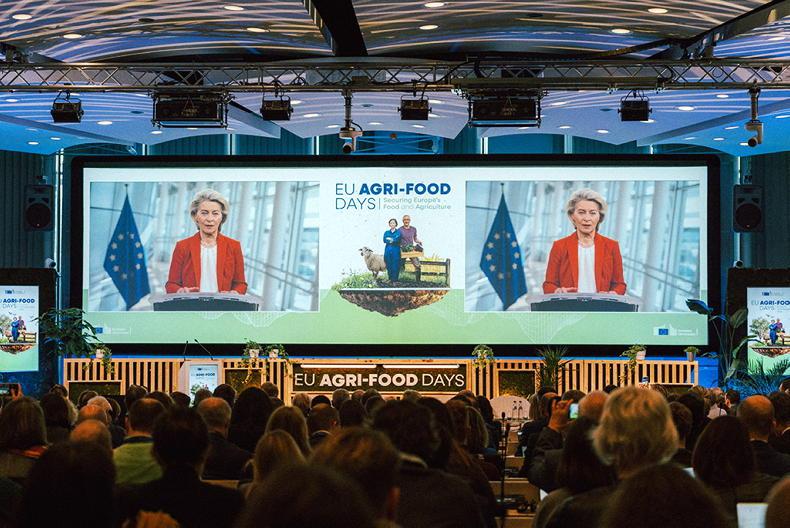The deputy president of National Farmers’ Union (NFU), Guy Smith, has expressed concern over what will influence policies made in London after Brexit.
Speaking at CAFRE Greenmount on Tuesday, Smith acknowledged that many UK farmers voted to leave the EU because regulatory decisions coming from Brussels, particularly around approval for pesticides, were becoming less science-based.
“I agree with that, but I don’t believe that we are necessarily going to see a more science-based, less populist pesticide regime [in the UK after Brexit].
"In fact, the soundings from Defra would almost suggest the opposite,” he said at the Ulster Arable Society conference.
He gave the example of last month’s decision by Defra Secretary Michael Gove to ban the slug pellet metaldehyde in the UK from spring 2020.
As a lobby organisation, we need to continue to concentrate on both Brussels and the UK
There are some concerns over the risk that metaldehyde poses to birds and mammals, however the product is still authorised for use in 21 EU member states.
“We haven’t seen the evidence or the science. If this is a flavour of the way that pesticides are going to be regulated by Westminster, the challenge for [farm] lobby groups will not be any less than it is now,” Smith maintained.
He added that policies affecting UK farmers in the future could still be affected by, or aligned to EU rules, regardless of what form Brexit eventually takes.
“As a lobby organisation, we need to continue to concentrate on both Brussels and the UK,” he maintained.
Glyphosate
The Essex arable farmer said that a key decision due by the end of 2022 was re-authorisation of glyphosate, the active ingredient in Roundup.
He urged farmers to lobby local MPs and demonstrate that glyphosate allows less ploughing, and subsequent release of carbon into the atmosphere, and also means less grain drying.
“It is a green environmental tool. We have to make that case,” he said.
Records
Smith also suggested that arable farmers should consider keeping more digital records of pesticide use and be open to allowing government access to them so that policy makers have evidence of how products are used on farms in a responsible manner.
“At the moment, information used by environmental groups is based on how much pesticides are bought in the UK, which gives no clear understanding of why they are used,” he said.
Veganism
During his presentation, Smith discussed other public perception issues facing farmers, including the rise of veganism.
He said that the vegan movement is based on three issues: animal welfare, climate change and the human diet.
“It is important that, as farmers, we pull those arguments apart,” he said.
Smith’s advice was to tell consumers that if they want high animal welfare standards with a low carbon footprint, they should buy meat and dairy products from UK farms.
He added that there is no evidence to suggest that meat and dairy is problematic in the diet when consumed in the right portions.










SHARING OPTIONS